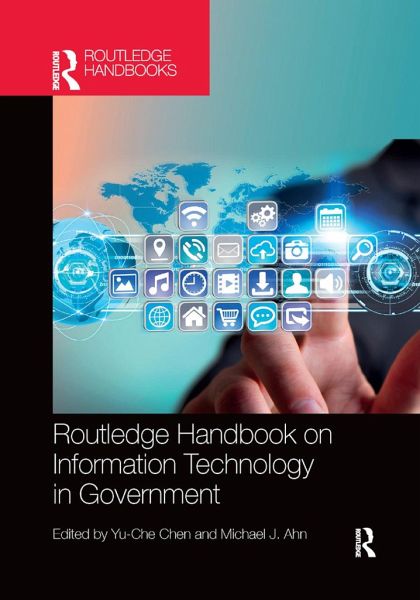
Routledge Handbook on Information Technology in Government
Versandkostenfrei!
Versandfertig in 1-2 Wochen
57,99 €
inkl. MwSt.
Weitere Ausgaben:

PAYBACK Punkte
29 °P sammeln!
The explosive growth in information technology has ushered in unparalleled new opportunities for advancing public service. Featuring 24 chapters from foremost experts in the field of digital government, this Handbook provides an authoritative survey of key emerging technologies, their current state of development and use in government, and insightful discussions on how they are reshaping and influencing the future of public administration. This Handbook explores: Key emerging technologies (i.e., big data, social media, Internet of Things (IOT), GIS, smart phones & mobile technologies) and thei...
The explosive growth in information technology has ushered in unparalleled new opportunities for advancing public service. Featuring 24 chapters from foremost experts in the field of digital government, this Handbook provides an authoritative survey of key emerging technologies, their current state of development and use in government, and insightful discussions on how they are reshaping and influencing the future of public administration. This Handbook explores: Key emerging technologies (i.e., big data, social media, Internet of Things (IOT), GIS, smart phones & mobile technologies) and their impacts on public administration The impacts of the new technologies on the relationships between citizens and their governments with the focus on collaborative governance Key theories of IT innovations in government on the interplay between technological innovations and public administration The relationship between technology and democratic accountability and the various ways of harnessing the new technologies to advance public value Key strategies and conditions for fostering success in leveraging technological innovations for public service This Handbook will prove to be an invaluable guide and resource for students, scholars and practitioners interested in this growing field of technological innovations in government.














